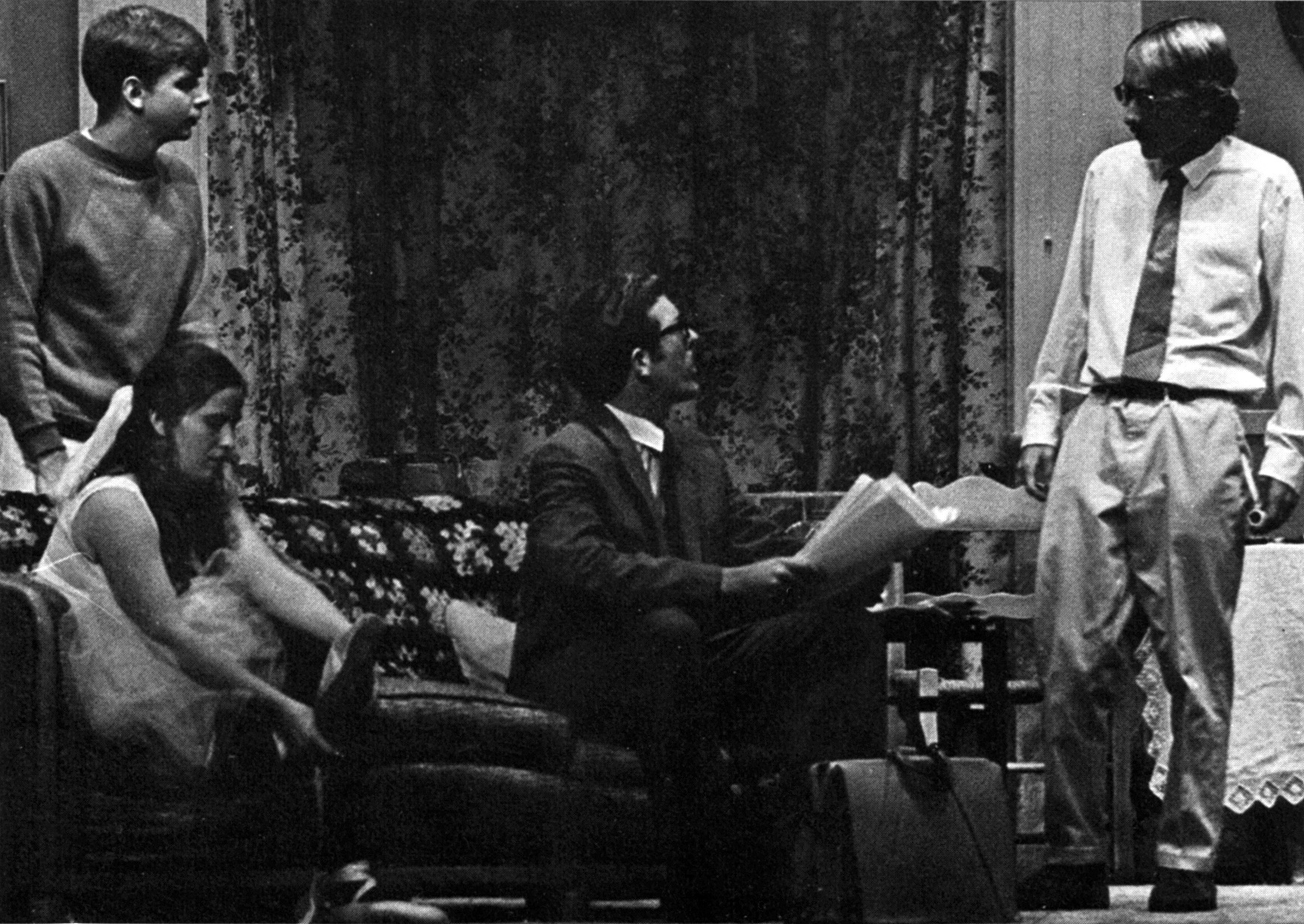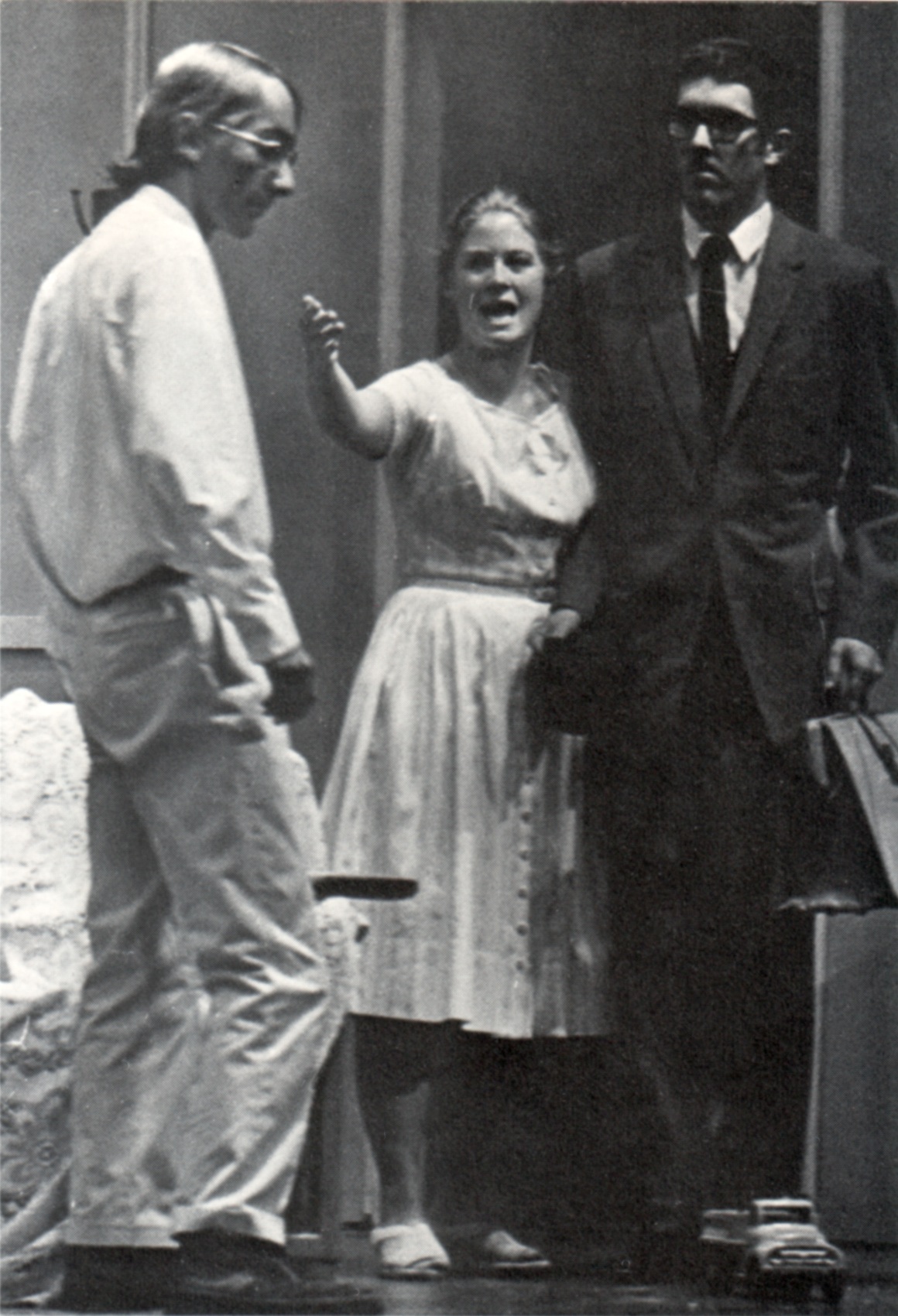
 Last Saturday night, using free tickets a friend of my wife gave us, we attended the production of an abridged version of Andrew Lloyd Webber’s Joseph & The Amazing Technicolor Dreamcoat at Prescott High School in Prescott, AZ. It was the first time for me to see the play; I’d of course heard of it, but had never seen it, assuming it was a biblical travesty like his subsequent work, Jesus Christ Superstar.
Last Saturday night, using free tickets a friend of my wife gave us, we attended the production of an abridged version of Andrew Lloyd Webber’s Joseph & The Amazing Technicolor Dreamcoat at Prescott High School in Prescott, AZ. It was the first time for me to see the play; I’d of course heard of it, but had never seen it, assuming it was a biblical travesty like his subsequent work, Jesus Christ Superstar.
Turns out it wasn’t, so that was cool. It was a actually well-designed, well-executed production and all who were involved with it should be proud of their accomplishment.
There were two standouts in the cast: Summer, who played the narrator, has the voice of an angel and a stage presence well beyond her tender years, and Emily, a female dancer who also had a stage presence which commanded our attention (last names withheld to protect the innocent). If both of them can navigate the dual minefields of high school and college without being entrapped by the allure of drugs, unhealthy dating relationships, unprotected sex and all that entails, teenage rebellion, etc. (all of which plague our educational institutions nationwide), they have a bright future ahead of them as performers.
I wish them well!
A Blast From The Past
It also brought back some of the very few fond memories I have of my own high school experience, my limited participation in the San Leandro High School drama department and some of the exemplary productions that came out of that very talented group of individuals, the plays The Merchant of Venice, Fiddler On The Roof, and You Can’t Take It With You to name three. The last one was the only production in which I actually had a speaking role, that of the uptight, straight-laced, no-nonsense IRS agent who suddenly finds himself in the midst of a bunch of lunatics (see yearbook photo at right).
The Moral of Joseph’s Story

Another yearbook photo of me (seated center) in You Can’t Take It With You. (click on image to enlarge)
The moral of Joseph’s tale is this: “Are you going to wear your life or are you going to live it?” Joseph does not realize who he is or his potential until he has nothing. Then he finds out who he is and his purpose, not only interpreting dreams, but helping others achieve theirs, like the Pharaoh saving his country from famine.
While this sounds good at first glance and may generate some warm-fuzzies for readers ignorant of the story actually portrayed on the pages of chapters 37-45 in the Book of Genesis, the real moral of Joseph’s story bears zero resemblance whatsoever to this humanistic, feel-good drivel.
The true messages of the account of Joseph’s life are:
- The redemptive quality of God, Who can transform the aftermath of our own stupid choices and/or the stupid/malevolent choices of others into qualities, abilities, and circumstances that cause us to be better off for them. God didn’t cause them, He just uses them to bless us and others through that transformation, one which only takes place when we turn those choices and experiences over to Him for His healing attentions, rather than us trying to fix things in our own lack of wisdom, knowledge, strength, and ability or, worse yet, prevent His healing us by our own unwillingness to forgive ourselves and/or those who have wronged us.
- The faithfulness of God in honoring His covenant with Abraham and his descendants throughout perpetuity by redeeming Joseph’s negative circumstances to achieve a great deliverance for Jacob and his other sons.
- Joseph’s faith in God & overall positive outlook. Look, I’m certain that he had moments of despair during both his trek to Egypt with the slave traders and all those years in prison later on, but it appears that through his faith in God, he never allowed those moments to dominate his overall attitude.
- Joseph’s personal honor & integrity in the midst of severe temptation.
- The power of forgiveness in the face of dastardly sins perpetrated against him by his brothers and Potiphar’s wife through no fault of his own.
Now, granted that a public school cannot espouse Items #1-3 on this list, because they might offend some militant fool(s), er, atheist(s) (see Psalm 14:1) who would love to sue the school district over it.
But, in a day when depression, hopelessness, and teen suicide are at an all-time high with personal morals and integrity throughout our society at an all-time low, don’t you think a combination of a non-theological interpretation of Item #3 maintaining hope and staying positive while enduring hardship and Items #4-5 would be far better messages to be sending our young people?
I think so!
Thanks for reading!


